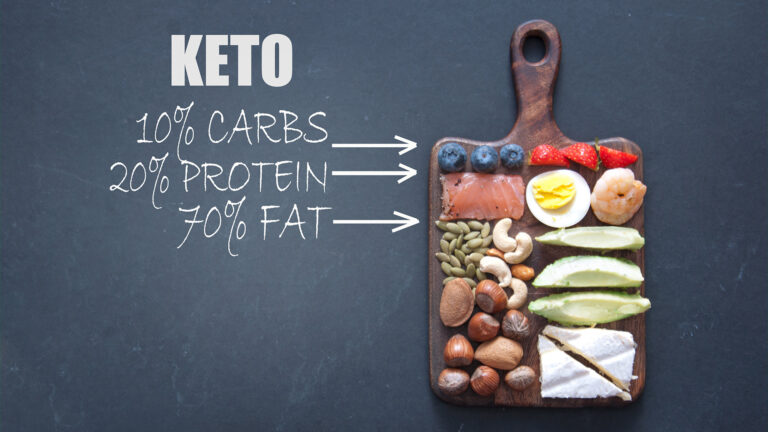Are you struggling with metabolic health issues or obesity? Perhaps you’ve been battling type 2 diabetes, hypertension, or other conditions that seem impossible to overcome. If this sounds like you, then exploring a low-carb diet could be life-changing. In this post, we’ll delve into how reducing carbohydrate intake can profoundly impact your health, including my personal journey of reversing type 2 diabetes and reclaiming a vibrant, healthy life.
The Benefits of a Low-Carb Diet
Low-carb eating offers a multitude of health benefits, especially for individuals dealing with metabolic disorders. In my case, it reversed type 2 diabetes in just a few weeks. My A1c returned to normal in just a few months. And all of the other diabetic complications that I suffered with for years have either disappeared completely or dramatically improved in a year.
What Is a Low-Carb Diet?

Reducing carbohydrate intake, emphasizing whole, nutrient-dense foods such as:
- Lean proteins: chicken, fish, and grass-fed meats
- Healthy fats: avocados, olive oil, and nuts
- Low-starch vegetables: spinach, broccoli, zucchini, and cauliflower.
By minimizing carbs, you encourage your body to burn fat for fuel, a metabolic state known as ketosis. This state is incredibly effective for weight loss and reversing metabolic conditions.
This is What I’ve Experienced
Reverses or Improves Type 2 Diabetes
Low-carb diets can significantly reduce blood sugar and insulin levels. After struggling with type 2 diabetes for over 30 years, I managed to reverse my condition by embracing a ketogenic lifestyle. No more medication, just healthy, sustained energy!
Normalizes Blood Pressure
High blood pressure is closely linked to insulin resistance. By cutting carbs, I was able to normalize my blood pressure without the need for pills.
Improves Circulation and Neuropathy
Years of uncontrolled diabetes had left me with neuropathy, a condition causing pain and numbness in my extremities. The reduction in inflammation and improved circulation from low-carb eating healed my neuropathy completely.
Restored Sexual Health
Men, if you’re struggling with erectile dysfunction, a low-carb diet could be the answer. I was able to overcome ED by improving my vascular health through dietary changes.
How Does It Work?
I was treated for type 2 diabetes for more than 30 years and suffered from complications for years, despite all that I had done to manage the disease. My glucose and LDL were awesome. I lost 200 pounds, quit smoking, and exercised, but despite everything I had done, I just got sicker. Everyone told me that if I lost weight, my health problems would probably improve. Basically, they all told me that I was sick because I was fat, but there’s one thing that all of the cardiologists, pulmonologists, ER doctors, and even my family doctor never told me. Nobody ever told me that the thing that was causing all of my health problems could be fixed.
I was not sick because I was fat. I was fat because I was sick.
Everything changed when I stopped trying to lose weight and focused on improving my health. Show me a drug that cures all of the health problems that plague our world. You can’t because there isn’t one. But there is a solution.
When I switched to a low-carb, ketogenic diet, everything changed. I was off of all of my diabetic drugs in 6 weeks and had a normal A1c in nine months. There has been significant improvements in all areas of my health.
Low-carb eating works by addressing the root cause of many chronic conditions: insulin resistance. Here’s how:
Carbohydrate-focused diets, particularly those high in refined sugars and processed foods, contribute significantly to the development of insulin resistance. When we consume an abundance of carbs, our blood sugar levels spike, prompting the pancreas to release insulin to shuttle glucose into cells for energy. Over time, frequent and excessive carbohydrate consumption forces the body to produce increasingly higher levels of insulin to manage these spikes. This constant demand can overwhelm cells, leading to a reduced sensitivity to insulin, a condition known as insulin resistance. As a result, blood sugar levels remain elevated, forcing the pancreas to work even harder, often leading to chronic health issues like type 2 diabetes, metabolic syndrome, and non-alcoholic fatty liver disease. This cycle underscores the critical role of reducing carbohydrate intake in maintaining metabolic health and preventing insulin resistance.
According to Dr. Jamnadas, who is a Florida based cardio doctor, carbohydrates are responsible for about 20% of the disease in our bodies, but insulin, is responsible for about 80%.
Eventually, our cells stop listening to insulin and become resistant.
- Reduces glucose and insulin spikes
- Encourages fat burning
- Decreases inflammation
- Promotes healthier hormone levels
Getting Started with Low-Carb Eating
If you’re new to the idea, start small:
- Cut out processed sugars and refined grains. Replace them with healthier options like zucchini noodles or cauliflower rice.
- Focus on whole, nutrient-rich foods. Fill your plate with lean proteins, healthy fats, and colorful vegetables.
- Experiment with recipes. Try keto-friendly dishes to find what you love.
Key Benefits of a Low-Carb Lifestyle
- Sustainable weight loss
- Improved blood sugar control
- Increased energy levels
- Reduced inflammation
- Enhanced mental clarity
My Journey: A Testament to the Low-Carb Lifestyle
I’ve struggled with weight my entire life. More than 30 years ago, everything fell apart and I put on a lot of weight. That’s also around the time that I was diagnosed with type 2 diabetes. The diabetes diagnosis was a wake up call. I knew I had to do something, but what do you do when you know everything you do is going to fail. Around this time, I discovered a medically supervised, extreme low calorie, high protein, low carb diet. This was my first exposure to low carb dieting.
Take the First Step
A low-carb diet isn’t a fad; it’s a sustainable, science-backed way to improve your health and reclaim your vitality. Whether you’re dealing with obesity, diabetes, or other metabolic conditions, consider making this powerful change.
By adopting a low-carb lifestyle, you’re not just changing your diet—you’re changing your future.
Our bodies get the fuel we need for energy from the food we eat. All of the nutrition that we get comes from Carbohydrates, Fat and Protein. These are what’s known as macros. When we eat food, our bodies work their magic and convert it into energy. Any excess energy that we consume, gets stored as fat. It doesn’t matter which macros we eat. Our amazing bodies convert excess energy to fat and it gets stored on our bodies as fat. This miracle is created by a powerful hormone made in our pancreas, called insulin.
Insulin does a lot of things in the body, but it’s most famous for controlling blood glucose levels. When we eat, it
Are you ready to transform your health? Start today with small, intentional steps, and watch as the benefits unfold.



